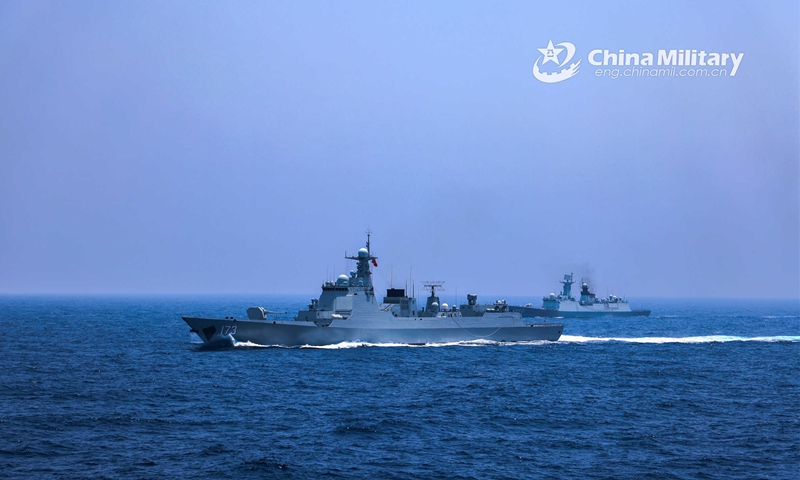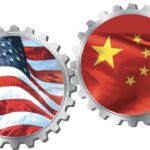The ongoing multilateral military exercises featuring the US and Philippine navies in the South China Sea and the Philippines’ continued provocations against China could lead to a military escalation to the tensions that will backfire on the Philippines, experts said on Saturday.
Featuring anti-submarine, anti-surface, anti-air and electronic warfare drills, the 12-day Exercise SAMASAMA is being held around the Luzon, the Philippines from Monday to Friday, VOA reported on Saturday.
The Philippines, US, Canada, Japan, UK, France, Australia, Indonesia and New Zealand are participating in the exercise, with the Philippines sending the BRP Antonio Luna frigate, the US sending the USS Dewey destroyer and the USNS Wally Schirra dry cargo ship, the UK sending the HMS Spey offshore patrol vessel, Canada sending the HMCS Vancouver frigate and Japan sending the JS Akebono destroyer, VOA reported.
The VOA report cited analysts as saying that the multilateral exercise is being held only about 340 kilometers away from Huangyan Dao (also known as Huangyan Island), which could become a focus of tensions between the US, the Philippines and China.
The exercise is being held amid tensions between China and the Philippines in the South China Sea, with the Philippines making several provocations against China in the region since August, including repeated attempts to send building materials to China’s Ren’ai Jiao (also known as Ren’ai Reef) to reinforce a Philippine warship illegally grounded there since 1999, and a self-staged show hyping China’s setting up of a “floating barrier” to block a Philippine vessel’s illegal entry.
All those attempts were dealt with by the China Coast Guard, which vowed to continue to hold law enforcement activities in waters under Chinese jurisdiction in accordance with the law and will resolutely safeguard national sovereignty and maritime rights, while Philippine and some foreign media continued to hype the close encounters between China Coast Guard vessels and Philippine ships.
However, if the Philippines and countries outside the region including the US opt to send naval forces and escalate the current tensions in the South China Sea to a higher and more military level, China will have to send the People’s Liberation Army (PLA) to safeguard national sovereignty and territorial integrity, analysts said.
“China has been countering provocations reciprocally. The Philippines sent coast guard vessels, so it was the China Coast Guard that dealt with them. But if the Philippines and the US escalate the tensions by sending their militaries, China will likely respond reciprocally,” Song Zhongping, a Chinese military expert and TV commentator, told the Global Times on Saturday.
If this happens, it will be the Philippines that is stuck in the middle of a China-US major power competition and will suffer the most, Song said.
China will not tolerate the Philippines challenging its national sovereignty and security no matter who supports it, so the Philippines should manage risks and not go further on this wrong path, which was created by the US with sinister intentions of containing China, disrupting the Asia-Pacific region and benefiting at the Philippines’ expense, Song said.
The PLA is always ready to safeguard national sovereignty and territorial integrity in the South China Sea, observers said.
On September 17, the PLA Navy Type 056A corvette Aba rescued a wounded Philippine fisherman seeking help near Ren’ai Jiao, the PLA Navy said in a press release on September 24.
The PLA Navy said that the warship was on a combat readiness patrol around the region, and analysts said that its immediate response to the distress call showed the PLA’s continuous presence in the South China Sea.
The PLA has established a complete system and a network consisting of multiple military services and branches including the Navy, the Air Force and the Rocket Force in the South China Sea, ensuring its ability to safeguard national sovereignty and territorial integrity, another Chinese military expert, who requested anonymity, told the Global Times on Saturday.
Provocations will not benefit the Philippines’ national interests, so the Philippines should see through the US’ incitements and return to the right track of dialogue and cooperation with China, which will help it with economic development, the expert said.
(Global Times)




